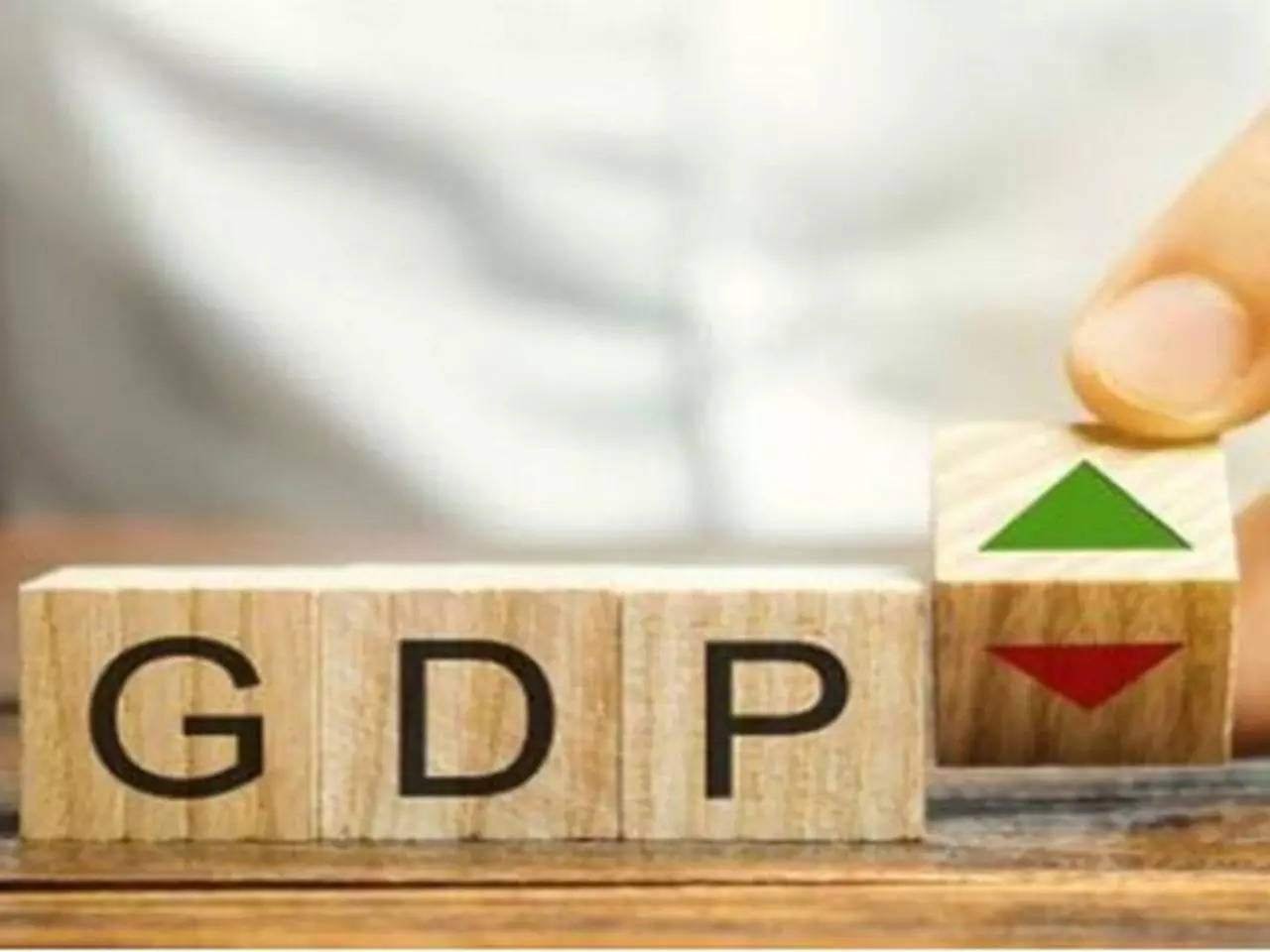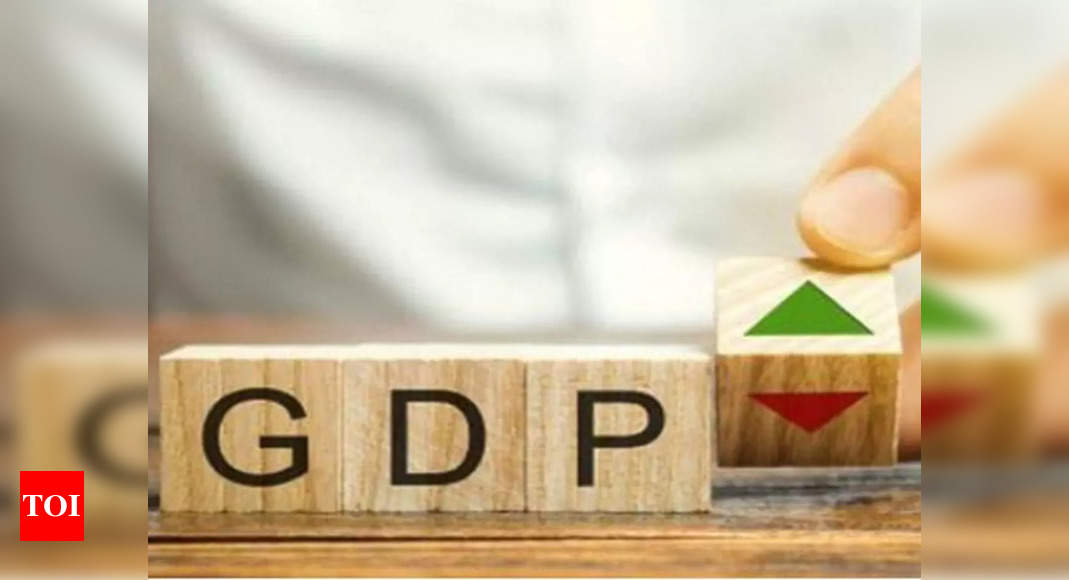
NEW DELHI: India Inc on Thursday said 8.4 per cent GDP growth in the October-December quarter of FY24 has “surpassed” expectations, and the economy is on a high growth trajectory due to sustained reforms undertaken by the government.
India’s economic growth accelerated to 8.4 per cent in the October-December quarter of this fiscal, driven by double-digit growth in manufacturing and good showing by mining & quarrying and construction sectors.
The GDP (gross domestic product) growth was 4.3 per cent in the October-December 2022 quarter, according to the data released by the National Statistical Office (NSO) on Thursday.
“Industry is enthused to note the strong set of GDP growth numbers for the third quarter (YoY), which surpassed expectations…What is more comforting to note is the fact that the robust expansion came despite the recurring spate of geopolitical flashpoints,” said Chandrajit Banerjee, director general, CII.
He further said the Indian economy is on a high growth trajectory supported by structural reforms and improvements in both ease and cost of doing business.
“This makes us confident that the Indian economy will continue to grow at 7 per cent plus growth rate over the medium term,” he added.
Deepak Sood, Secretary General of Assocham, said India’s stellar 8.4 per cent GDP growth for the third quarter of 2023-24 is indeed laudable.
“What stands out is the double-digit expansion in manufacturing. Consistent high growth in manufacturing can provide a transformative change in the direction of our economy,” he said.
According to the NSO data, mining and quarrying grew at 7.5 per cent in the third quarter, up from 1.4 per cent a year ago. The construction sector kept the growth momentum at 9.5 per cent against the same growth rate in the year-ago period.
However, the output of the farm sector declined by 0.8 per cent during the quarter compared to a growth of 5.2 per cent a year ago.
Commenting on the data, Aditi Nayar, Chief Economist, Icra, said the third quarter data on India’s growth threw up a divergent trend, with the GVA growth moderating broadly on expected lines to 6.5 per cent, and the GDP expanding by a much higher than anticipated.
“This wide gap followed a surge in the growth of net indirect taxes to a six-quarter high of 32 per cent in this quarter, which is unlikely to be sustainable. In our view, it may be more appropriate to look at the trend in the GVA growth to understand the underlying momentum of economic activity,” she said.
The NSO also released the second advance estimate for the current fiscal and pegged the economic growth at 7.6 per cent against 7.3 per cent estimated in the first advance estimate released in January.
India’s economic growth accelerated to 8.4 per cent in the October-December quarter of this fiscal, driven by double-digit growth in manufacturing and good showing by mining & quarrying and construction sectors.
The GDP (gross domestic product) growth was 4.3 per cent in the October-December 2022 quarter, according to the data released by the National Statistical Office (NSO) on Thursday.
“Industry is enthused to note the strong set of GDP growth numbers for the third quarter (YoY), which surpassed expectations…What is more comforting to note is the fact that the robust expansion came despite the recurring spate of geopolitical flashpoints,” said Chandrajit Banerjee, director general, CII.
He further said the Indian economy is on a high growth trajectory supported by structural reforms and improvements in both ease and cost of doing business.
“This makes us confident that the Indian economy will continue to grow at 7 per cent plus growth rate over the medium term,” he added.
Deepak Sood, Secretary General of Assocham, said India’s stellar 8.4 per cent GDP growth for the third quarter of 2023-24 is indeed laudable.
“What stands out is the double-digit expansion in manufacturing. Consistent high growth in manufacturing can provide a transformative change in the direction of our economy,” he said.
According to the NSO data, mining and quarrying grew at 7.5 per cent in the third quarter, up from 1.4 per cent a year ago. The construction sector kept the growth momentum at 9.5 per cent against the same growth rate in the year-ago period.
However, the output of the farm sector declined by 0.8 per cent during the quarter compared to a growth of 5.2 per cent a year ago.
Commenting on the data, Aditi Nayar, Chief Economist, Icra, said the third quarter data on India’s growth threw up a divergent trend, with the GVA growth moderating broadly on expected lines to 6.5 per cent, and the GDP expanding by a much higher than anticipated.
“This wide gap followed a surge in the growth of net indirect taxes to a six-quarter high of 32 per cent in this quarter, which is unlikely to be sustainable. In our view, it may be more appropriate to look at the trend in the GVA growth to understand the underlying momentum of economic activity,” she said.
The NSO also released the second advance estimate for the current fiscal and pegged the economic growth at 7.6 per cent against 7.3 per cent estimated in the first advance estimate released in January.
Source link

